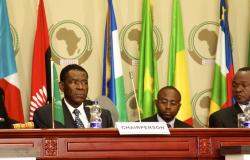
The growing importance of executive authority at the international level has fuelled scholarly debate about the level of autonomy enjoyed by international public administration (IPA), that is, the executive arms of international organisations. Insights from IPAs in the West or Global North, such as the European Union, have largely shaped these debates, whereas data from IPAs in the Global South are largely missing in the discussion. This article seeks to remedy this imbalance and contribute to an organisational-theory-inspired conceptualisation of IPA autonomy: We draw insights from survey data from the commissions of the African Union (AU) and the Economic Community of West African States (ECOWAS). We demonstrate that, although both commissions are embedded in inter-governmental organisations, they demonstrate remarkably strong features of actor-level autonomy. Thus, this study suggests that even IPAs constrained by an inter-governmental environment may still wield some degree of autonomy. Finally, the article draws practical implications for reforming IPAs.
Policy implications
- The autonomy of international bureaucracies is safeguarded even under less likely conditions, such as when these institutions are embedded in inter-governmental IOs. IPA administrators may thus profoundly alter the policy agenda of their IOs by redesigning the internal organisational structures of the secretariat.
- Because actor-level autonomy reflects organisational designs of international bureaucracies, it is also subject to organisational (re)design. This implies that the autonomy of individual civil servants of IPAs may be nuged by reforming the substructures of IPAs, such as organisational units and divisions.
- The likelihood of IOs crafting their own policy agendas is systematically shaped by the autonomy of their bureaucratic arms. This study outlines organisational conditions that enable international bureaucracies to mobilise their own policy agendas quite separate from member state governments. The level of policy autonomy of IPAs may thus be partly affected by organisational design/engineering by the heads of IPAs.
- Because international bureaucracies harbour stable organisational resources, and because our study establishes substantial effects of organisational structure on actor-level autonomy among IPA staff, our study illuminates the organisational basis for robust global governance. One take-away is that the level of robustness in global governance is subject to organisational design among IPA heads.
Image: Embassy of Equatorial Guinea via Flickr (CC BY-ND 2.0)